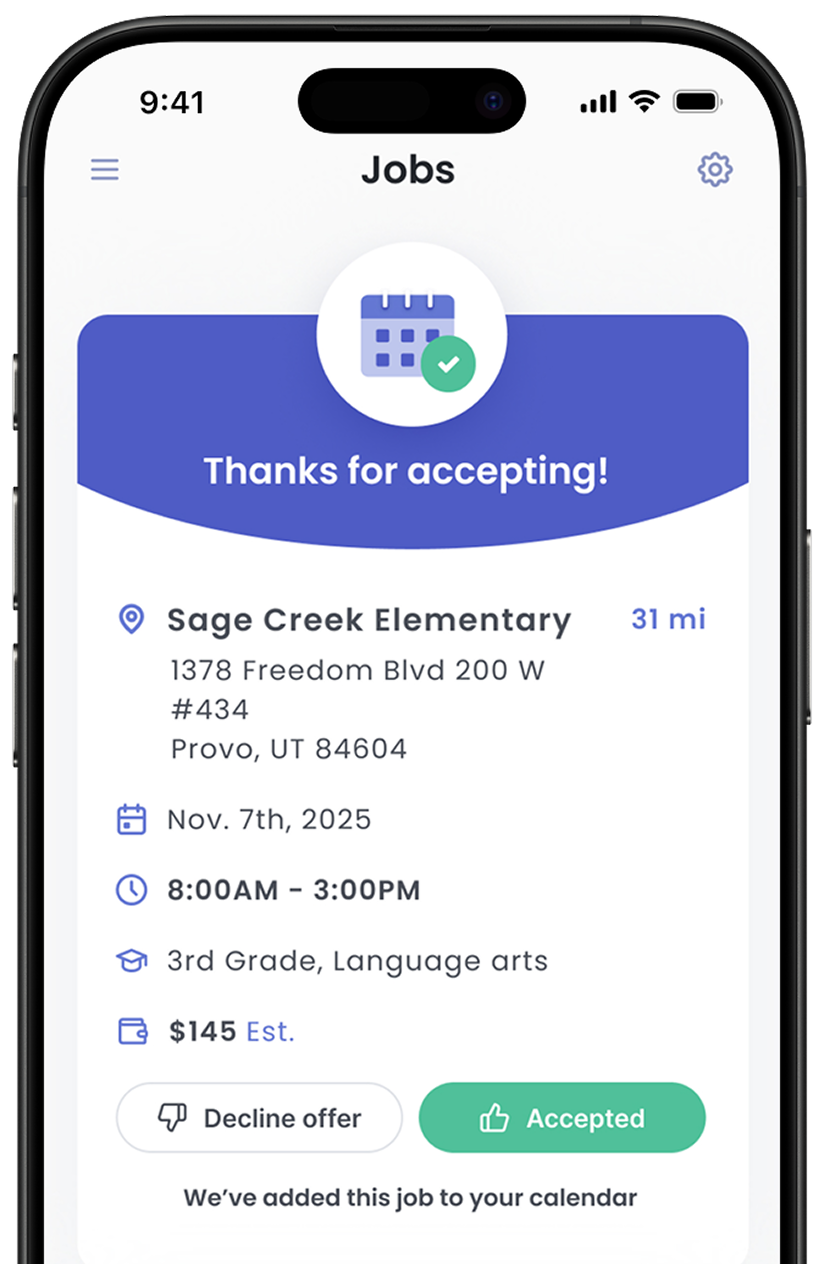Major vs. Minor Injuries
As a substitute, you always want to be prepared to help students or staff in the event of an emergency or injury. This resource will discuss minor injuries, but it is important to distinguish the kinds of things that are considered major vs. minor.
The most common major emergencies or injuries at schools include
- any head injury, even if it seems minor (getting hit by a ball on the playground, falling and hitting head, etc.)
- seizure
- allergic reaction
- diabetic emergency
- fainting
- broken bone
- choking
- severe asthma
Other emergencies are less common, but you should always be watchful for any students or staff in medical distress. You should not hesitate to give life-saving care when needed, using emergency equipment if needed (such as an EpiPen prescribed for allergies or diabetics, or an AED). For life-threatening emergencies, do not hesitate to call 911.
For major emergencies or injuries that are not life-threatening, contact the school nurse or office for support. It is okay to send a student to get another teacher for help as an emergency is unfolding. Never send a student to the nurse or office alone; have a peer or available staff member accompany the student.
Minor Injuries
You are likely going to have students come to you with minor injuries, things like
- cuts
- scratches
- scrapes
- scabs
- hangnails
- bloody noses
- pinched fingers
- falling down
- horseplay, hits, kicks, shoves
Avoid Handling Blood
For minor injuries with bleeding, you should not handle blood or have other students handle blood. Offer the student a tissue or paper towel to prevent blood from getting elsewhere. If blood has gotten on any surfaces or materials, use cleaning wipes if available, or call the office for support to get the blood cleaned up.
Cuts, Scratches, Scrapes, Scabs, Hangnails
Students should wash, dry, and apply a bandaid to small cuts, scratches, scrapes, or opened scabs. If the classroom has a sink, they can wash there, or they can go to the bathroom to wash. If there aren't bandaids in the classroom, you can ask a nearby teacher or send the student to the nurse/office. If the injury happens on the playground, send the student to the nurse/office. Contact the nurse/office when sending students, and make sure to watch for the student's return.
Bloody Noses
When students have a bloody nose, they should use tissue in the nostril, and they can pinch their nose if they wish. Contrary to popular belief, students should NOT tip their heads back. Students should wait a few minutes before removing the tissue, and if needed, should replace the tissue if the bleeding has not stopped. Older students generally want privacy and are okay to step just outside the classroom to handle it.
Once the bleeding has stopped, the student should keep a tissue on hand just in case and should wash off any blood on the hands and face.
Pinched Fingers
When desks are pushed together in groups, students sometimes put their hands in the gaps and can get pinched fingers as the desks shift around. Students may also get their fingers pinched in doors. If the injury appears to be severe, notify the nurse/office and send the student to get checked. If it looks like a minor pinch, comfort the student by showing sympathy; for younger students, a bandaid can also provide comfort, even if it is not necessary.
Falling Down
Students may fall down while walking, playing on the playground, or not sitting in their chairs correctly. If the student's head is injured in the fall, it is treated as a major injury, and the student should be sent to the nurse/office to get checked. Do not send the student to the nurse/office alone; have a classmate or available staff member accompany the student. Most schools have very specific procedures for documenting and notifying parents of any injury involving the head, even if it seems minor.
Horseplay, Hits, Kicks, Shoves
Whether playing or actually fighting, you may witness (or have students come tell you about) hitting, kicking, shoving, and so on. Obviously, the best remedy for these injuries is prevention! Keep a close eye on students in the classroom and on the playground, watching for any signs that play is getting out of hand, or that interactions are turning aggressive. You should put an immediate stop to rough play to prevent it escalating to physical violence. Obviously, you should put an immediate stop to any physical violence that you see happening.
Whether you see it or have it reported to you by a student, you should call the office for support since it may involve school discipline.
.png)




